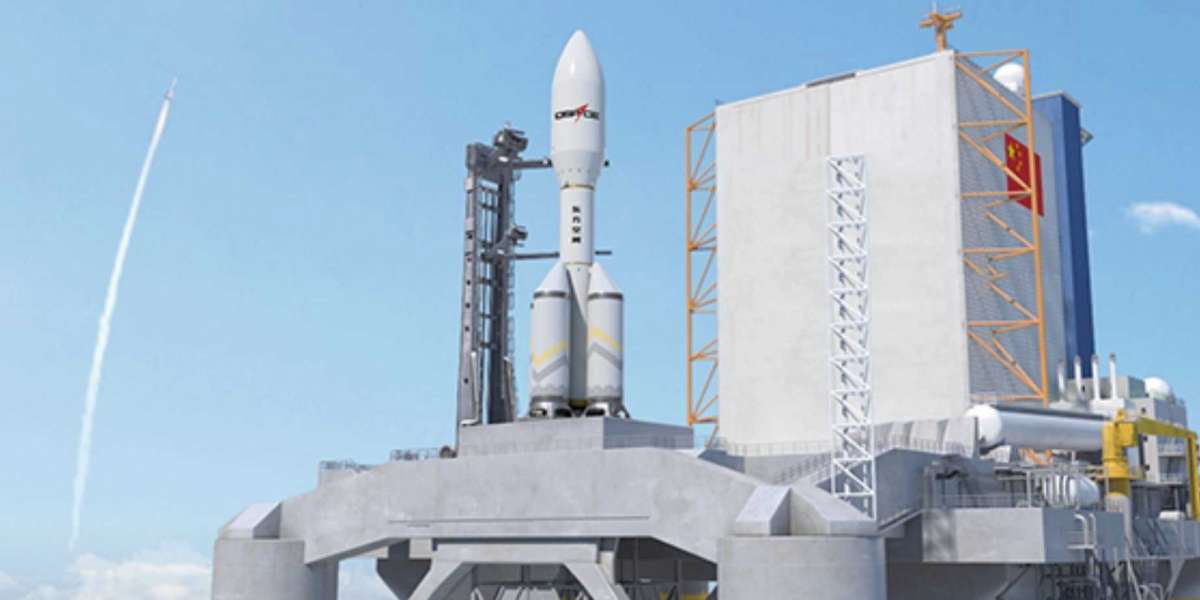For its series of more complicated "Gravity" launch vehicles, one of China's newest launch businesses has been raising a lot of money.
Orienspace was created in 2020 and announced its plans for a series of rockets last year after raising $65 million in seed funding. Despite its infancy, the company revealed in January that it had just secured another $47 million, making it one of the most well-funded Chinese start-ups.
In 2023, the company plans to launch its first rocket, Gravity 1. Gravity 1 combines a liquid propellant core stage with solid propellant boosters that are simpler to utilize. The rocket, which will be 102 feet long (31 meters) long, will be capable of sending 6,600 pounds (3,000 kilograms) into low Earth orbit, or LEO.
In 2024 and 2025, larger, more difficult Gravity 2 and 3 launch vehicles will be available, capable of launching 33,000 pounds (15,000 kg) and 66,100 pounds (30,000 kg) to LEO, respectively.
In a similar way to how SpaceX transformed the Falcon 9 rocket into the Falcon Heavy, the latter will be a three-core reusable rocket powered by kerosene and liquid oxygen, with the prospect of producing a three-core version.
In addition to announcing its new rockets, the company, which employs 70 people, has begun work on a commercial launch vehicle assembly and integration test center in Shandong Province's Haiyang City.
A new Chinese spaceport specialized to water launches has already opened in Haiyang, and a specially constructed vessel for sea launches is set to begin operations later this year.
Orienspace will have a launch site and a landing platform for its first stages thanks to the facilities in Haiyang.
Yao Song, a 29-year-old CEO who previously created Shenjian Technology, is one of the driving forces behind Orienspace. In an interview with Chinese media in November 2021, Yao stated that the company wants to acquire contracts to launch satellites for China's planned national satellite internet network, which is expected to have over 13,000 satellites.
With China's government agreeing to open up the country's space sector to private funding back in 2014, the company will, however, face a formidable field of competition packed with more experienced players.
Major state-owned firms, like as China Rocket, Expace, and CAS Space, have launched their own rocket startups to compete for commercial contracts in addition to China's Long March rockets.
Other private companies are added to this. In the following months, Landspace will launch its Zhuque 2 rocket, while iSpace, China's first commercial launch business to carry a satellite into orbit, will launch its Hyperbola 1 and Hyperbola 2 rockets. Galactic Energy, Deep Blue Aerospace, Space Pioneer, Space Transportation, and Linkspace are some of the other companies involved.
In the same interview, Yao claimed that Orienspace will look into the possibility of space tourism. He also stressed the necessity of China's complete participation in space exploration and stated that the country is eager to progress.
Yao regards space resources, such as satellites in orbit, as a first-come, first-served system. Following Zheng He's travels, China's Ming Dynasty (1368 CE to 1644 CE) began to look inwards, he relied on historical events, observing the tremendous implications of Western countries exploring the Atlantic and the globe in centuries past.
If China does not become engaged now, companies like SpaceX would control the space market, according to Yao.



